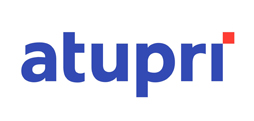Most Swiss travel outside of Switzerland at least occasionally. Understanding how medical expenses you incur while traveling outside of Switzerland are covered by your Swiss health insurance can help you avoid expensive mistakes.
This moneyland.ch guide explains the travel coverage from Swiss mandatory health insurance, and tells you how you can insure against additional costs.
Does mandatory insurance cover medical care in European countries?
Yes. Compulsory Swiss health insurance covers medical care in the UK, EFTA and EU countries. However, coverage is limited to unplanned medical care for accidents, illness, and maternity that cannot wait until you return to Switzerland.
The same conditions that apply to public healthcare for residents of the country you are visiting also apply to you. So which country you get treatment in determines which medical costs are covered and which deductibles and coinsurance apply, among other things. It also determines whether or not you have to pay your medical bills upfront and then claim reimbursement. The normal coverages, insurance models, payment settlement models, and deductibles that apply in Switzerland are not relevant.
You must provide proof that you have mandatory Swiss health insurance. The easiest way to do this is to show the European Health Insurance Card (EHIC) that you receive from your Swiss mandatory insurance provider. Alternatively, you may be able to ask your insurance provider to send a proof-of-insurance document. If you cannot provide an insurance card or a certificate, you may have to pay your medical bills yourself. You can then claim reimbursement from your Swiss mandatory health insurance provider.
Table 1: Examples of public healthcare in popular travel destinations
|
Country
|
Cover
|
Deductibles and payment
|
|
Croatia
|
Only dentists, doctors, hospitals, and
pharmacies that have a contract with
the Croatian Health Insurance Fund
are covered. Necessary ambulance
transportation is covered.
|
Out-of-pocket costs:
- EUR 17.70 per day (max. EUR 530.88 per stay) for hospital stays.
- EUR 1.32 per dentist, doctor visit, and per medical prescription.
- EUR 4.41 per visit to a specialist.
Additional out-of-pocket costs apply to specialized diagnoses,
orthopedics and medical aids, physiotherapy, and orthodontics.
|
|
France
|
Only dentists, doctors, and hospitals
that have a Sector 1 contract with the
government health insurance scheme
are covered. Ambulance transportation
is only covered if it is prescribed by a
medical doctor. Healthcare providers
with a partial contract charge an
additional surcharge.
|
You must pay bills yourself. The healthcare service provider gives
you a certificate which you can use to reclaim the cost from your
Swiss health insurance provider. Out-of-pocket costs are made up
of a ticket modérateur deductible (typically 30%), flat contributions
(EUR 2 per visit), and deductibles (EUR 1 per pack for medicine,
EUR 4 for ambulance transportation). Additionally, you pay EUR 20
per day for hospital stays.
|
|
Germany
|
Only doctors and dentists that partner
with the public statutory health
insurance system are covered.
Doctor-prescribed treatment by
specialists is covered. Stays in
the general wards of hospitals
are covered in the case of
medical emergencies or if they
are prescribed by a doctor.
|
Out-of-pocket costs:
- EUR 10 plus 10% of the cost for doctor-prescribed treatments by
specialists
- 10% (min. EUR 5, max. EUR 10) for doctor-prescribed medicines
and ambulance transportation.
- Adults pay an out-of-pocket charge of EUR 10 per day for the first
28 days of a hospital stay in the same year.
|
|
Italy
|
Only ambulances, doctors, and
hospitals who work for or are
contracted by the ministry of
health are covered.
|
You pay a deductible out of your own pocket in these cases:
- Visits to specialists.
- Instrument- and laboratory-based diagnoses.
- Spa/thermal therapies.
- Treatment in emergency wards when there is no medical emergency.
|
|
Spain
|
Only public ambulances, doctors,
healthcare centers and hospitals
are covered. Dental treatments
are only covered in a few specific
cases.
|
No deductible or coinsurance for public healthcare services.
Out-of-pocket costs for medicines prescribed by a public doctor:
50% of the cost (10% for pensioners).
|
Date: September 27, 2024. Source: European Commission. Croatian Health Insurance Fund. Service-Public.fr. Ministero della Salute.
Does mandatory insurance cover medical care in the rest of the world?
Medical care in countries other than the UK, EFTA, and EU is only covered in the case of medical emergencies when treatment cannot realistically wait until you return to Switzerland.
Coverage is limited to double the amount that your insurance provider would pay for an equivalent hospital stay in your canton.
In the case of emergency treatment at hospitals, coverage is limited to a maximum of 90 percent (2 x 45 percent) of the cost of equivalent treatment in your canton. If you live in a canton where your health insurance provider covers less than 45 percent of the cost – with the cantonal government covering more than the required 55 percent share – then coverage for foreign hospitals is correspondingly lower.
Example: You are hospitalized after contracting an illness while on holiday in a foreign country. The bill comes to the equivalent of 30,000 francs. The same treatment in a hospital in your canton would also cost 30,000 francs, but the state would cover at least 16,500 of that (55 percent). So your Swiss mandatory health insurance would cover 27,000 francs (90 percent) of the bill, minus your deductible and coinsurance. You would have to cover the remaining 3000 francs plus your deductible and coinsurance out of your own pocket.
Table 2: Costs covered by Swiss mandatory health insurance
|
Country
|
Insurance coverage
|
|
Switzerland
|
Full coverage as per Swiss mandatory health insurance.
|
|
EFTA/EU/UK
|
Only unplanned medical care for accidents, illness, and maternity that cannot wait until
your return to Switzerland is covered.
You are entitled to the same public healthcare as residents of the country you receive
treatment in. The rules of the public healthcare system in the specific country you
receive treatment in determine which costs are covered and which deductibles and other
out-of-pocket costs apply. Typically, you do not have to pay for medical care up front if
you show your European Health Insurance Card or a certificate of insurance, though
exceptions apply.
|
|
All other countries
|
Only medical emergencies are covered, and only if treatment cannot realistically wait
until you return to Switzerland.
The rules for mandatory Swiss health insurance apply. Your Swiss health insurance
provider covers a maximum of 90 percent* of the cost of equivalent treatment in your
canton, minus your deductible and coinsurance. You have to pay the costs up front and
then claim reimbursement from your Swiss health insurance provider.
|
*In cantons that cover a bigger share than the required minimum of 55 percent, the insurance provider’s share is lower than 45 percent. In this case, the coverage limit for foreign countries (double the portion paid for hospital stays in your canton) is lower than 90 percent.
Is planned medical treatment in foreign countries covered?
There are only a few cases in which Swiss compulsory health insurance covers the costs of planned treatments outside of Switzerland. These exceptions are:
- The required treatment is not available in Switzerland.
- If you are a foreigner living in Switzerland and your child must be born in your country in order to obtain citizenship, and would otherwise be stateless. In this case, the cost of the delivery in your country of citizenship is covered by mandatory Swiss health insurance.
In these cases, you must get the consent of your health insurance provider in advance to be able to claim insurance benefits.
Are medicines I buy in other countries covered by mandatory health insurance?
The cost of medicines you buy outside of Switzerland is only covered if they are required for the treatment of an illness during your stay in the foreign country.
Medicines which you purchase in foreign countries for treatments in Switzerland are not covered. For example, if you buy medicines in a neighboring country as part of a cross-border shopping trip, you cannot reclaim the cost from your Swiss compulsory health insurance provider.
Is ambulance transportation in foreign countries covered?
In EFTA and EU countries or the UK, the ambulance coverage of the social health insurance scheme in the country you are visiting applies. In many countries, you do not have to pay for transportation in public ambulances in the event of a medical emergency.
In all other countries, Swiss mandatory health insurance covers 50 percent of the cost of ambulance transportation, up to a limit of 500 francs per year. The same limits apply to emergency medical repatriation to Switzerland.
Does Swiss mandatory health insurance cover dental care in foreign countries?
As with medical care, dental care is only covered in the case of a medical emergency that cannot realistically be treated in Switzerland at a later date.
If you are visiting the UK or an EU or EFTA country, whether or not emergency dental care is covered depends on the laws of the specific country. Some countries include dental care in their public healthcare systems or social health insurance schemes.
In all other countries, dental coverage is limited to the exceptional situations covered by Swiss mandatory health insurance.
Does compulsory health insurance cover search and rescue operations?
If you are visiting an EU or EFTA country, or the UK, then the search and rescue coverage provided by the local public healthcare system of that country applies.
Search and rescue operations in all other countries are not covered by Swiss mandatory health insurance.
Costs may be covered by Swiss employer-based accident insurance
If you are employed and work for the same Swiss employer at least eight hours per week, then your employer is required to get you non-occupational accident insurance in addition to the mandatory occupational accident insurance for injuries in the workplace.
Like mandatory health insurance, employer-based accident insurance covers emergency medical care in foreign countries, up to a maximum of twice the amount the insurer would pay for equivalent medical care in Switzerland. But cover is limited to injuries resulting from accidents.
One major difference is that ambulance transportation, search and rescue, and repatriation for accidents that occur in foreign countries are higher than those of mandatory health insurance. These costs are fully covered, up to a maximum of one-fifth of the maximum insurable salary. Currently the limit would be one-fifth of 148,200 francs, or 29,640 francs.
Employer-based accident insurance does not have an insurance deductible or coinsurance. It also includes loss-of-income benefits and disability pensions.
Does Swiss supplemental health insurance cover medical costs outside of Switzerland?
Nearly all Swiss supplemental outpatient insurance offers include coverage for medical care, ambulances, medicines, search and rescue, and medical transportation to Switzerland when a medical emergency occurs outside of Switzerland. This insurance covers the portion of costs that is not covered by your mandatory health insurance, up to certain limits.
You can filter, sort, and compare offers based on the travel medical coverage they provide using the interactive supplemental health insurance comparison on moneyland.ch.
Swiss complementary hospital insurance generally covers medical emergencies outside of Switzerland as well. The interactive supplementary hospital insurance comparison makes it easy to find offers that cover emergency hospital stays in other countries. Just select the “hospital abroad” filter to limit results to offers that include this coverage.
Does travel insurance cover medical emergencies?
Many travel insurance offers include coverage for medical emergencies in foreign countries. Additionally, many also cover search and rescue, ambulances, and medical repatriation to Switzerland. Some offers include money advances (loans) for medical bills that have to be paid upfront. The benefits and limits vary between individual offers.
Travel insurance is generally a cheaper way to insure against travel medical emergencies – compared to supplemental outpatient insurance or hospital insurance. Some neobanks and many Swiss credit cards include this insurance in their complimentary cardholder benefits. However, it is important to compare the coverage for medical expenses abroad, as the benefits included in travel insurance may be lower than what you get with supplemental health insuance.
You can use the medical expenses sort tool in the interactive travel insurance comparison to sort offers based on their cover for medical emergencies.
Is mandatory Swiss health insurance enough?
That depends on your situation. Getting additional, voluntary outpatient insurance, hospital insurance, or travel insurance is particularly beneficial in these cases:
- You travel to destinations other than the UK or EFTA and EU countries.
- Affordable public healthcare in the countries you travel to does not meet your standards, requiring you to use expensive private medical care.
- You cannot afford to front the cost of hospital stays or other medical care until you receive reimbursement.
- The activities you engage in put you at risk of needing search and rescue services. This is especially true if you do not have Swiss employer-based accident insurance.
- Repatriation: The cost of emergency medical transportation back to Switzerland can be very high. Mandatory Swiss health insurance covers 50 percent of medical transportation costs, but only up to a maximum benefit of 500 francs per year. It can be beneficial to get supplemental health insurance or travel insurance with good coverage for medical repatriation.
Some European countries have public healthcare systems that provide ambulance transportation, inpatient and outpatient treatment, search and rescue, and other emergency medical care at little or no cost for you as a European Health Insurance Card holder. If you only travel to these countries, then getting additional health insurance for travel may not be necessary.
It is worth noting though, that supplemental health insurance may include many other many other health insurance benefits. Likewise, Swiss travel insurance offers generally also include many different travel insurance coverages.
More on this topic:
Compare Swiss mandatory health insurance offers now
Compare supplemental outpatient insurance offers now
Compare supplemental hospital insurance offers now
Compare Swiss travel insurance offers now


 Deal of the Day
Deal of the Day 






